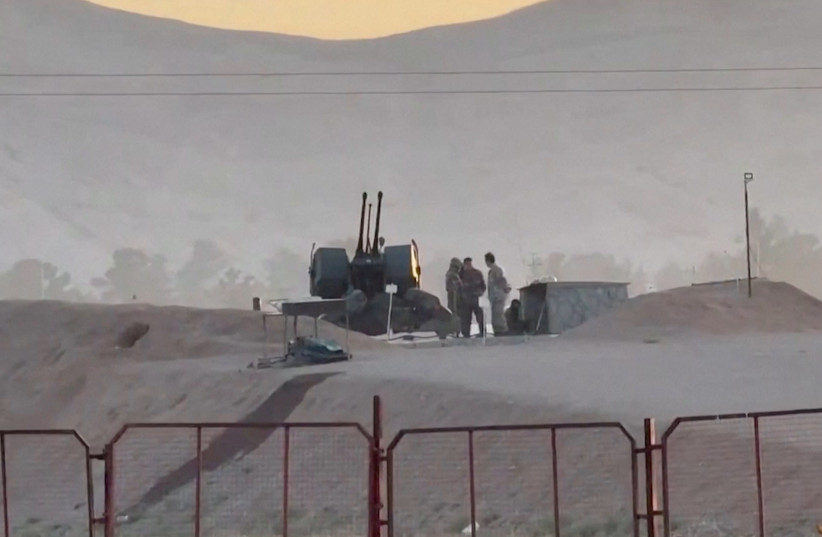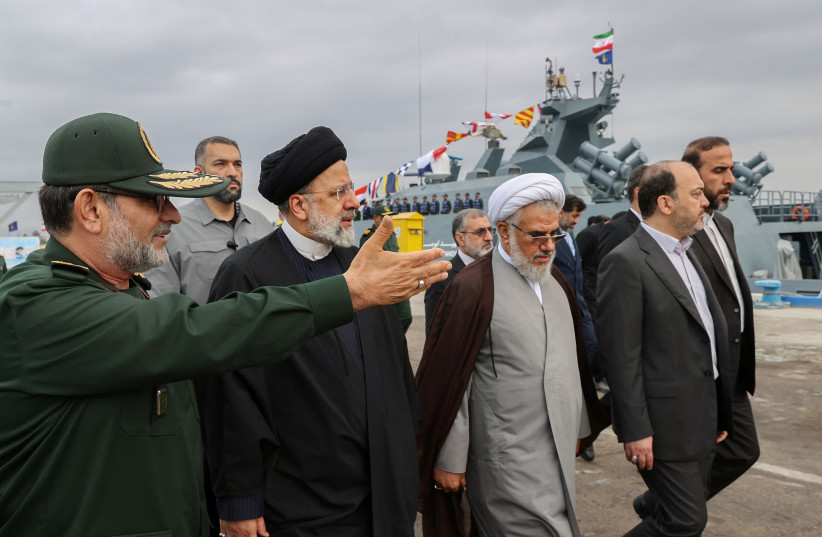Crown Prince Pahlavi: ‘Democratic secular Iran’ possible with UK intervention
The Iranian Islamic regime is “rattled, weak and desperate,” said Reza Pahlavi, exiled Crown Prince and last Shah of Iran, in an op-ed in the British publication The Telegraph over the weekend in which he discussed the role of Britain in bringing about the end of the regime, the imperativeness of listing the IRGC as a terrorist organization, and the best way to support the Iranian people.
Iran’s new president, Masoud Pezeshkian, has been touted as a reformist since his appointment as the successor to Ebrahim Raisi, who died in a helicopter crash in May. Pahlavi, however, wrote that Pezeshkian is neither a “reformist nor moderate”; rather, his record shows him to be “unwaveringly loyal to the Supreme Leader and the Islamic Republic’s hard-line policies.”
The Crown Prince said that the new president was labeled a “reformer” in a “fig leaf” attempt to rejuvenate Iran’s image. He cautioned the West against falling for this, which he called “a political maneuver” on the part of Iran.
While the Iranian people want “democracy and freedom,” said Pahlavi, the regime itself remains radical. This radicalism has been exported over the last four decades, evident in the extensive network of Iranian proxies across the region.
The regime, he continued, must be held accountable for their crimes, something which people across the world have gradually come to recognize over the last few years.
Regarding the Islamic Revolutionary Guards Corps (IRGC) being listed in Canada as a terrorist organization, Pahlavi encouraged the UK to follow suit, stating that the evidence against the guards was “unequivocal.”

The IRGC “promotes terrorism at home and abroad. It funds and backs terrorist acts by Hamas, Hezbollah, the Houthis, and others in the region. It supports the Russian invasion of Ukraine with drones and arms. On British soil, it is responsible for dozens of attacks and attempted kidnappings against journalists, dissidents, and officials. It spreads an extreme Islamic ideology through a network of schools, charities, and mosques in the UK.”
In Iran, Pahlavi wrote that the IRGC has “viciously suppressed, executed and tortured” its citizens.
Reminding Britain that they are no stranger to Iran’s “hostage taking, assassination attempts and terrorist attacks,” he encouraged them to “lead in Europe” by following in Canada’s footsteps. In 2023, the Met Police reported that they had foiled 15 plots by Iran to either kidnap or kill British or UK-based individuals it considered “enemies of the regime.”
Pahlavi commended the work of new British foreign minister David Lammy, who met with both the Israeli and Palestinian prime ministers yesterday and asked him to send “a powerful message” by moving to label the IRGC as a terrorist entity. This message, he continued, was necessary to both warn the “ever-weakening regime” and to send support to the “long-suffering Iranian people.”
The UK government has spoken previously on the matter, stating that a channel of communication between London and Tehran was essential for dialogue and labeling the IRGC as terrorists that would burn this bridge. Pahlavi stated that this would not be the case, and regardless, that the dialogue – in his view – had not been successful anyway.
“Decades of appeasement and containment of the Iranian regime has just emboldened them and harmed British interests.”
Lord David Cameron told Benjamin Netanyahu in April 2024 that the UK would not be proscribing Iran’s Islamic Revolutionary Guard Corps as a terror group.
Nuclear appeasement
Pahlavi warned that the Iranian regime’s proximity to reaching full nuclear capacity meant that time was running out, and options would soon become more limited.

However, the former Shah criticized the belief that sanctioning Iran’s military branch “would set an irreversible diplomatic precedent that could later be used against the West by bad actors such as Russia and China.”
This conception hinged, in his view, on a “fundamental misunderstanding of the IRGC, whose very name does not include the word “Iran” because its mission is not Iran’s defense but the export of the Islamic Revolution around the world.”
Bringing about change
He also wrote of the widening fissures in Iranian society, saying that the regime was becoming increasingly divided due to the public turning against the leadership. The evidence for this, Pahlavi said, was the “boycott of its sham elections” and “defections from within the armed forces.” Iran International reported a 50% voting turnout in the May Iranian elections. A source the Jerusalem Post spoke to corroborated this.
Pahlavi recommended harnessing this existing internal tension rather than centering efforts on methods of appeasement or military action. By “backing the Iranian people’s fight for democracy,” he argued, there may be more success in bringing down the regime from within, similar to apartheid in South Africa, which received international support.

“It is time for not just maximum pressure, but a policy of maximum support.”
Listing the IRGC would be the first, but critical, step of this more concerted effort, said Pahlavi.
“Imagine a democratic secular Iran living at peace with its neighbors. Imagine a new economic powerhouse building regional prosperity and peace. This is now possible. The Iranian people are fighting to make this a reality, and with your support, they will achieve this in less time and at a lower cost.”
“Change is inevitable in Iran,” said Pahlavi.
“It will be driven from within the country, and it may happen sooner than you think.”





Comments are closed.